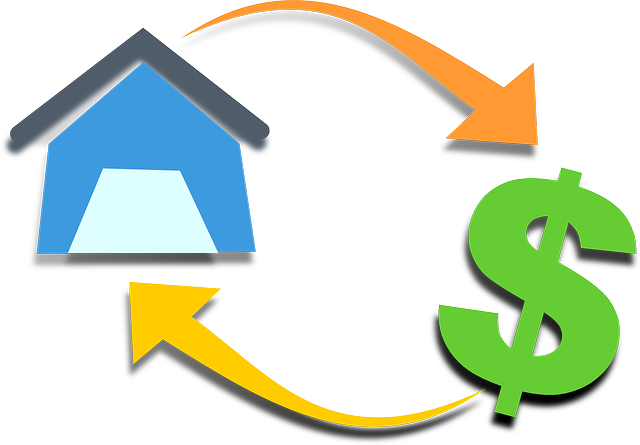Personal Loans for Debt Consolidation offer a strategic financing solution by bundling multiple high-interest debts into a single, lower-interest loan secured against property like your home or vehicle. This approach provides streamlined payments, budget optimization, and long-term interest savings, but carries significant risks, including the potential loss of collateral upon default. Secured consolidation loans attract with favorable terms like lower rates and flexible periods, yet their complexity and higher rates necessitate thorough understanding and careful planning before use.
Considering a personal loan for debt consolidation? Secured consolidation loans, backed by your property, offer both advantages and risks. This article breaks down the pros and cons of using your collateral, helping you understand the implications. We’ll explore how these loans can simplify debt management while weighing potential drawbacks like increased risk and stricter terms. By the end, you’ll be equipped to make an informed decision about pursuing a secured consolidation loan for your personal financial needs.
- Understanding Secured Consolidation Loans
- Benefits of Using Your Property as Collateral
- Potential Drawbacks and Risks
- Weighing the Pros and Cons for Your Situation
Understanding Secured Consolidation Loans
Secured consolidation loans are a type of financing option designed to help individuals manage their debt by combining multiple high-interest debts into a single loan with a potentially lower interest rate. This approach uses your property, such as your home or vehicle, as collateral, which serves as security for the lender. The process simplifies repayment by reducing the number of payments you make each month and can save money on interest over time. Personal loans for debt consolidation are particularly appealing to borrowers looking to streamline their financial obligations and gain better control over their finances.
These loans offer several advantages, primarily centered around debt reduction and financial ease. By consolidating debts, individuals can free up extra cash flow each month that was previously allocated to multiple payments. This flexibility allows for better budgeting and potentially faster repayment of the loan. However, it’s crucial to recognize that this type of loan also carries risks. If you default on the secured consolidation loan, the lender has the right to seize and sell your collateral to recover their losses, a significant potential consequence that must be carefully considered before taking out such a loan.
Benefits of Using Your Property as Collateral
Using your property as collateral for a consolidation loan can offer several advantages. One of the primary benefits is access to larger loan amounts, which can be particularly helpful when dealing with substantial debt. This type of loan allows you to combine multiple high-interest debts into one single payment, simplifying your financial obligations and potentially saving you money on interest charges.
Additionally, property collateral provides lenders with a sense of security, which often results in more favorable terms for borrowers. Lower interest rates, flexible repayment periods, and the potential for tax deductions on interest payments can all make this option appealing for those seeking to consolidate their personal loans and improve their financial situation.
Potential Drawbacks and Risks
While secured consolidation loans offer a promising path to debt relief by utilizing your property as collateral, there are potential drawbacks and risks to consider. One significant risk is the possibility of foreclosure if you fail to make the required loan payments. This can be a stark consequence, leading to the loss of your home. Additionally, these loans often come with higher interest rates compared to unsecured personal loans for debt consolidation, as the lender is securing the loan with your property.
The process of using your property as collateral can also be lengthy and complex, involving thorough property appraisals and legal procedures. Moreover, if interest rates rise significantly during the loan term, it might be challenging to refinance or pay off the loan early without incurring substantial penalties. These factors underscore the importance of careful consideration and a thorough understanding of the terms before pursuing a secured consolidation loan.
Weighing the Pros and Cons for Your Situation
When considering a secured consolidation loan, it’s crucial to weigh both the advantages and potential drawbacks based on your unique financial circumstances. These loans, which use your property as collateral, offer several benefits for those seeking to consolidate debt. For instance, they often come with lower interest rates compared to unsecured personal loans for debt consolidation, allowing you to save money in the long run. Additionally, the loan terms can be tailored to suit your repayment capacity, providing flexibility and potentially reducing monthly payments.
However, there’s a significant risk involved. If you default on the loan, lenders have the right to seize and sell your collateral, which could result in losing your home or other valuable asset. This makes it imperative to have a solid financial plan and budget to ensure timely repayment. Furthermore, securing a consolidation loan may limit your future borrowing options, as the property remains tied up until the loan is fully repaid. Therefore, evaluating these factors thoughtfully will help determine if this approach aligns with your long-term financial goals.
Secured consolidation loans can be a powerful tool for managing debt, offering both benefits like lower interest rates and risks such as potential property loss. When considering a personal loan for debt consolidation, carefully weigh the pros and cons based on your financial situation and readiness to assume the responsibility. Informed decisions ensure you choose the best path toward financial health and stability.
